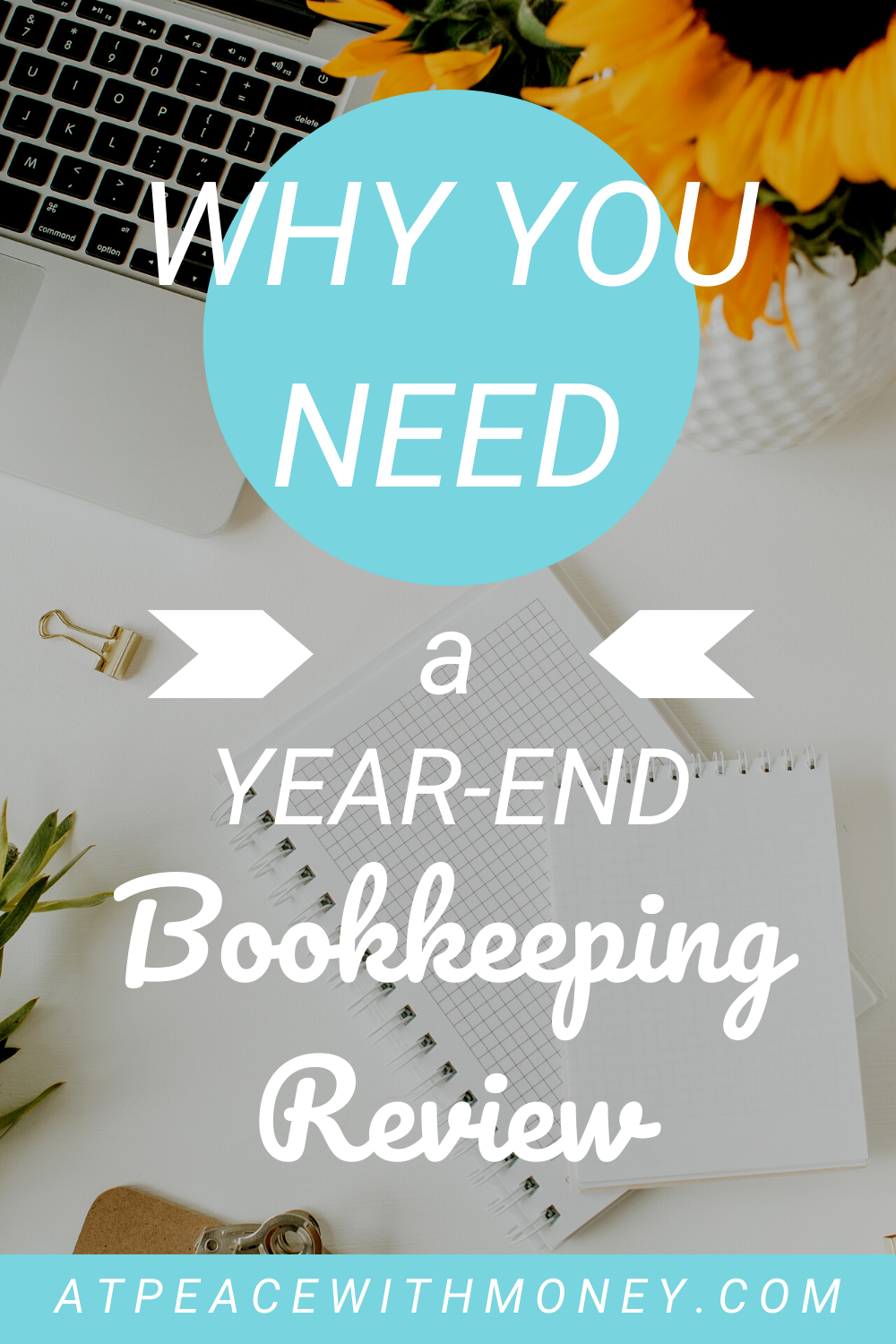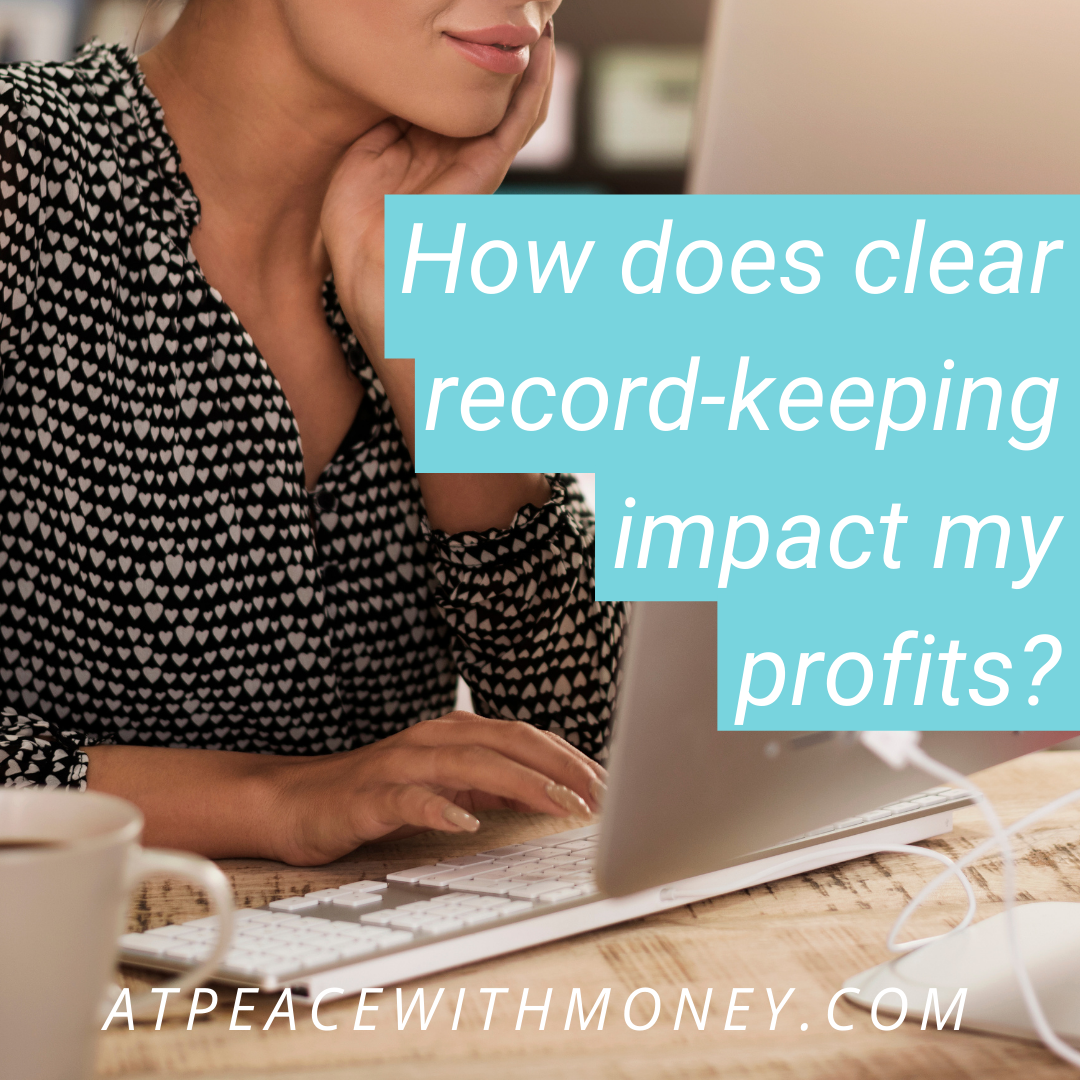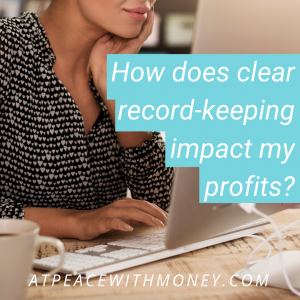4 Simple Tips for Keeping Your Small Business Finances Organized
![]()

In the midst of tax season, a lot of us are looking to do better on our finances. Maybe you got a big tax bill and are now wondering where your earnings went. Perhaps you were a little less organized than you would have liked. Or maybe this time just makes you extra aware of where your business is financially.
Whatever the case, mid-points like this are great times to give your finances a makeover! Here are my 4 simple tips for keeping your small business finances organized and intentional.
Review Your Goals
After a big financial event like tax season, the financial goals you set earlier in the year deserve a revisit. Check in with them and ask yourself if they still fit. If not, give your goals a nice update! Make sure what you’re aiming towards is relevant to you. You can check out my article on doing a mid-year review of your finances right here.
If you don’t have any financial goals, now is the time to set them. Harness whatever financial fervor tax season (or whatever other financial situation brought you to this post) has instilled in you.
What are your ideal financial conditions? Dream them up, write them down, and come up with a plan. If you need some pointers, here’s my article “4 Strategies for Setting Doable Financial Goals.”
Set Up a Weekly Money Check-In
So much of creating the life you want is about habits. One of the best habits to adopt, in my opinion, is regular “money time”. Find time each week to check in with your finances. Start with a short chunk, to make it feel more manageable. Fifteen to thirty minutes should suffice.
Use this time to check in with your expenses, upcoming bills, IOU’s, and more as needed. Here are my suggestions on what to look for during your weekly money check-in.

Make a Plan to Stay on Top of Your Books
Especially if organization was an issue this tax round and you run a business, making a plan to stay organized until next tax time is a great thing to do right now. Ask yourself what you need to be able to do this.
Do you need to work with a bookkeeper? Do you need to get some training on how to do your bookkeeping yourself? Identify your needs and take some steps to set yourself on the right path.
Find a Money Buddy
It’s my personal belief that anything can go better when you have an accountability buddy. Find someone in your circle who has a financial goal they’re working on too, and join forces! This might be a fellow business owner, or someone from your church, or another mom from a play group.
Once you’ve found your money buddy, establish the terms of your accountability partnership. How often do you want to meet? How do you want to do check ins? Do you want to learn about finances together, or just trade tips on goals?
These 4 tips will help set you on the right path. If you’re a small business owner looking for more ideas, you might like my free eBook, the Cash Flow Reboot Guide: A Guide to Thriving in Uncertain Times. Click below and get your free copy.















 financial records hold this info. Work with someone willing to help you find it! For more about finding and working with a bookkeeper, check out my post
financial records hold this info. Work with someone willing to help you find it! For more about finding and working with a bookkeeper, check out my post 


 Your financial record-keeping is a data source in your business. By having clear records, you can start to trace the revenue trends in your business. You can use this data to analyze what offerings are the most profitable, and what expenses bring you the best returns. If you want to know more about this, read my article on
Your financial record-keeping is a data source in your business. By having clear records, you can start to trace the revenue trends in your business. You can use this data to analyze what offerings are the most profitable, and what expenses bring you the best returns. If you want to know more about this, read my article on 








 If you received money from Paycheck Protection Program or other forms of small business support, it’s very important to stay on top of your record keeping this year. Especially if you’re applying for loan forgiveness, it’s important to keep your financials tidy. The
If you received money from Paycheck Protection Program or other forms of small business support, it’s very important to stay on top of your record keeping this year. Especially if you’re applying for loan forgiveness, it’s important to keep your financials tidy. The 


 Take time to think about what potential expenses may arise in the future. Perhaps you use a lot of special equipment in your business, and some of it is getting into disrepair. Maybe you simply have a hard time remembering when insurance or tax payments are due. Take note of all of these things and factor them into your money system or savings plan. Write important due dates on the calendar well ahead of time so you’re aware of them. Have an equipment replacement fund set aside for when your laptop or pottery wheel or farm vehicle finally busts or needs repair. The more you can anticipate these things and incorporate some wiggle room into your money system, the less you’ll be knocked sideways financially when they do come up.
Take time to think about what potential expenses may arise in the future. Perhaps you use a lot of special equipment in your business, and some of it is getting into disrepair. Maybe you simply have a hard time remembering when insurance or tax payments are due. Take note of all of these things and factor them into your money system or savings plan. Write important due dates on the calendar well ahead of time so you’re aware of them. Have an equipment replacement fund set aside for when your laptop or pottery wheel or farm vehicle finally busts or needs repair. The more you can anticipate these things and incorporate some wiggle room into your money system, the less you’ll be knocked sideways financially when they do come up.


 There are a number of ways to take this plunge. First, you can look through everything yourself. Especially if your books are not that complicated, or you have a rough system going already, taking a look on your own is a good idea. You can also get a good picture of whether you’re able to hire or consult with a bookkeeper. A good bookkeeper will be able to
There are a number of ways to take this plunge. First, you can look through everything yourself. Especially if your books are not that complicated, or you have a rough system going already, taking a look on your own is a good idea. You can also get a good picture of whether you’re able to hire or consult with a bookkeeper. A good bookkeeper will be able to 


 So, what do you gain when your records are well-kept? Errors are corrected, which can potentially save you money right out the gate. You incur no late fees on taxes because everything is organized and filed on time. You can use your reliable records to glean insights into when and how money is made in your business. You have less stress about finances because you know everything is being tracked correctly. And finally, you have more time to do the things in your business that you actually enjoy. Should you be spending your time doing bookkeeping when you’re actually really fabulous at making art, building cabinets, providing live entertainment, etc?
So, what do you gain when your records are well-kept? Errors are corrected, which can potentially save you money right out the gate. You incur no late fees on taxes because everything is organized and filed on time. You can use your reliable records to glean insights into when and how money is made in your business. You have less stress about finances because you know everything is being tracked correctly. And finally, you have more time to do the things in your business that you actually enjoy. Should you be spending your time doing bookkeeping when you’re actually really fabulous at making art, building cabinets, providing live entertainment, etc?